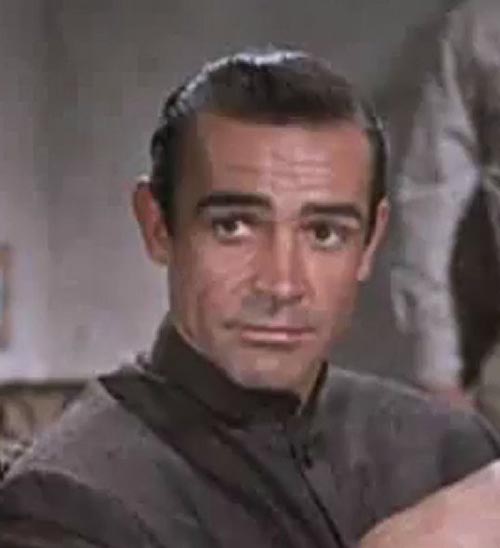NEVER-before-seen letters by Ian Fleming reveal that James Bond lost his famous game of golf against notorious baddie Goldfinger.
In the 1964 film of the same name, an undercover Bond – played by Sean Connery – tees off in a game of golf against Goldfinger to gather information on the villain’s gold-smuggling racket.
In the course of the game Goldfinger has his manservant Oddjob cheat by switching out balls after he splices a drive into the rough.
At the final hole Bond lets Goldfinger know the balls have been swapped causing the iconic Bond baddie to forfeit the game and as well as a £5,000 bet riding on it.

But now letters by Fleming have revealed that Bond lost the game according to the “Rules of Golf” – the official guidelines for the game penned by The Royal and Ancient Golf Club of St Andrews
The series of unseen letters have been published today in a new book compiled by Fergus Fleming – the famed author’s nephew.
The book – titled “The Man with the Golden Typewriter” – gives various insights into the novelist’s private life and addresses several rumours around the cavalier spy himself.
But one particular letter puts to bed rumours around the famous golf scene in Goldfinger – which die-hard golf fans have debated for decades.
In a letter responding to Bernard Darwin – golf writer and grandson of Charles Darwin – Fleming admitted that the rules would go against Bond in the famous scene.
His letter read: “Thank you very much for your kindly letter and I will now confess that a lot of my cronies at the Royal St Marks golf club say they would have given the match to Goldfinger because he ended the match with the ball he had started with.
“It is clearly a matter for the Rules of Golf.”
The Rules of Golf would state that because Goldfinger finished the final hole with the same ball he teed it off with there was no foul.
If Bond wanted to point out that Oddjob had swapped the ball he should have done so immediately after it happened.
But after they proceeded to the new hole Bond lost his chance to complain, and Goldfinger would have beaten him fair and square.
Connery himself admitted in his 2008 memoirs that the Goldfinger scene had kindled in him a lifelong love of golf.
“ I began to take lessons on a course near Pinewood film studios and was immediately hooked on the game. Soon it would nearly take over my life.”
“During the filming of Goldfinger, I learned the essential challenge of links golf at Royal Dornoch in the north-east Highlands. Ever since then I have been drawn to links golf and its enduring challenges.”
The famous debated scene took place at the Stoke Park House course in Buckinghamshire when an undercover Bond confronts Goldfinger over a game of golf.
In the game Goldfinger splices a drive into the rough and is unable to find his signature golf ball – marked with the number one.
To save him from losing face his Korean sidekick Oddjob – famously armed with a deadly bowler hat – slips another ball into the grass and claims to have found it.
But Bond knows that the crafty gold-smuggler has cheated, as he has found the real original ball – and
in a later round he swaps out Goldfinger’s ball for one marked with a seven.
After the final hole, when Goldfinger seems to have beaten Bond, the globe-trotting spy points out that he has been using a different ball – and must have found the wrong one in the rough.
The letters also gave further insight into the Bond author’s life as a popular writer.
In one letter Fleming replied one John G Ryan – the commercial manager of Shannon Airport in Ireland – who took issue with Diamonds Are Forever saying the shop sold “junk.”
In a haughty response he wrote: “I am greatly impressed that Shannon should have taken cognisance of my lighthearted thriller.
“I often come through Shannon and it will certainly be a great pleasure to meet you on my next visit and apologise in person for my happy-go-lucky references to the goods on offer in your shops.
“Perhaps by then all the Bog Oak Irish Harps and Brass Leprechauns will have been bought up by the GIs!”


